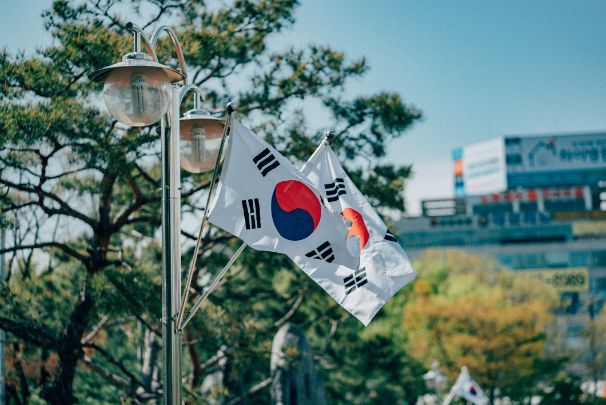Thinking about taking on the Korean language as your next language to learn? Read on and you can know the reasons why Korean is hard for English speakers to learn.
Despite being regarded as one of the most beautiful languages in the world, Korean is infamously difficult to learn. If so, you may be wondering, “Is Korean hard to learn for English speakers?”Many people ask this question. Due to the popularity of K-Pop, K-Dramas, Korean films, and Korean culture in general, Korean is now one of the most sought-after languages to learn.
The answer is that Korean is one of the most difficult languages for a native English speaker to learn.
Is Korean Easy to Learn for English Speakers?
How simple or difficult you find the Korean language will depend on a few different factors.
It partly depends on your native tongue, on any prior knowledge you may have of east Asian languages, and on how quickly you pick up new languages in general. A native speaker of Japanese, for instance, would find learning Korean easier than a native speaker of English would.
However, English native speakers can pick it up surprisingly quickly and easily with the right resources and techniques. You can check out more information we have on whether it is hard to learn German and Russian.
Reasons Why Korean Is Hard for English Speakers to Learn
Korean Alphabet
The Hangeul alphabet, which is used in the Korean language, is pronounced similarly to the English alphabet. It has 14 consonants and 10 vowels and can be quite fast and logical to pick up. There are some easy associations to connect the letters to what you already know in English.
When you are familiar with Hangeul, you can read words even if you are not yet familiar with their meanings. From there, you can take your skills to the next level by learning new Korean words to be added to your Korean vocabulary.
Korean Pronunciation
The pronunciation of words in the Korean language is governed by clear rules, and tones are not used. When you speak Korean, this makes it simple to develop your pronunciation skills.
Learn Hangeul (the Korean alphabet) first and become proficient with the word sounds to achieve the proper Korean pronunciation. If you try to use romanized English to pronounce Korean words, you will surely get confused as there are different ways to romanize Hangul letters. They serve no purpose for accurate pronunciation and are only an approximation.
It will be simple if you use associations between the Hangeul letters and English letters that sound similar. In 60 to 90 minutes, you can master Hangeul. Be sure to listen for the range of sounds possible for the Hangeul letters.
Despite the fact that there isn’t a precise 1:1 match, the associations with English letters can be useful. For example, the pronunciation of the Hangeul letter ㄹ is a range of sounds similar to an “L” and “R” in English.
Korean Sound System
Given that it is otherwise impossible to distinguish the speech sounds of a word in Korean, this may seem counterintuitive. But if you utter “kitten” (탕) in English and “hŏm ttae () in Both words should be easy for your tongue to pronounce if you speak Korean. The tricky part is learning when, which comes naturally once you listen to the music.

Korean Grammar
It’s simple to learn the fundamentals of grammar. As soon as you master Hangul, you can start with some fundamental Korean nouns. proceed to learn Korean verbs, eventually forming simple sentences and phrases. Adjectives and adverbs are also acceptable sentence constructions.
The construction of sentences must adhere to specific guidelines. Speaking Korean is incredibly simple because even the shortest sentences only contain one word. As you learn more complex sentences, it gets easier to build on that foundation and advance your abilities.
There are many different kinds of grammar to learn, some of which are extremely subtle. One at a time, concentrate on the most typical uses of each grammar point as you learn it.
In other words, if you only know 20% of the grammar, you’ll get 80% of the results. After that, you can continue.
Korean Vocabulary
The vocab is where the rubber hits the road for learning Korean.
Most words sound strange to someone who is just learning them. There are almost no words common with English, apart from a few loan words like “computer” or “television”.
If you speak Chinese or Japanese, you have an advantage over your average English speaker. Korean has a lot of loan words from Chinese, and they’re often the same ones that Japanese has.
However, the fact that so many Korean words sound alike is the main obstacle to learning them. And since there are no characters, it’s harder to build mnemonic building blocks in your mind. It’s never easy for me to tell apart words with similar sounds. To learn entire sentences using a program like Glossika is the only method that works for me.
What’s easy about Korean vocabulary:
- Fundamentally, the words are not difficult to say. You are now ahead of people who have to learn new phonetics just to learn a new word in languages like Chinese or Arabic. Case in point: “bread” in Korean is pronounced ppang, which isn’t hard to say (you kind of pause on the ‘p’ for longer), vs in Egyptian Arabic where it is pronounced 3aysh (requiring a whole new consonant, the ayn represented by the 3), or Mandarin where it is pronounced miànbāo, requiring you to know tones.
- Smaller word components are used to create larger words. This is conceptually similar to Chinese, where “computer” is “electric brain”. You put together related words in Korean by using common building blocks. For example, early in the piece I learned the word for school was 학교 (hak-kyo), and the word for student was 학생 (hak-seng). Any patterns emerging yet?
What’s harder about Korean vocabulary:
- The words sound strange. Nearly every word will be unfamiliar to you unless you speak Chinese or Japanese, and even those languages only give you a slight advantage. You only have a small number of mnemonics to create.
- Loanwords are not many at all. Yes, there’s “Konglish”, but nowhere near as much as in informal languages like Egyptian Arabic.
- The words can get quite long. Chinese words typically have two characters, on average. When Korean words are fully expressed with formality, their length can increase significantly. To make matters worse, words in sentences often have particles added to them. Because of this, it initially becomes more difficult to absorb and remember them.

How Long Does It Take to Learn Korean?
We’ve estimated it’d take around 1200 hours to become fluent. If you want to know more specifically what the answer would be like for you personally, we have a full post on how long it takes to learn Korean.
Is It Hard to Learn the Korean Alphabet?
Learning the alphabet (Hangeul) isn’t difficult and can be done easily in about 90 minutes. By associating the letter sounds with concepts that are familiar to English speakers, you should be able to learn the majority of the letters.
Many people will be able to recognize words using the Korean writing system within this time. Then you should practice the various sounds so you can read words with ease when you see them. Hangul characters will become easier and more natural to you with continued practice.
How Hard Is Korean Grammar?
You should be able to construct sentences as soon as you can read Hangeul because the fundamental rules of grammar are fairly simple. So, after two hours of learning Hangeul, you ought to be able to construct a sentence.
The structure of the sentence can be as straightforward as one word. That implies that you can begin forming sentences as soon as you learn Hangeul.
Korean grammar can get complicated because of honorifics and speech levels since these are engrained in Korean culture. You don’t have to devote a lot of time to them initially, though. Get the fundamentals down, and as you go, keep track of your speech levels. The formal speech levels are typically the most straightforward to learn for conjugating Korean verbs.
Is It Hard to Learn Korean Words?
The language’s word families make it simple to pick up a lot of vocabulary pertaining to a particular subject quickly. Being able to pronounce Korean correctly more quickly than other languages, such as French or Chinese, may be due to the lack of tones and clear pronunciation rules.
Many words used in the Korean language are loan words. Russian, Chinese, Japanese, and English are all possible languages for this. As a result, if you are fluent in one of these languages, you have a strong foundation in Korean vocabulary!
What Are Some Good Resources That Can Help Me Learn Korean?
Overexcitement is the source of all major difficulties. In other words: if you are unsure of how to proceed, any language or grammar book is going to be a walk in the park. Enjoy your adventure instead by being patient and taking it slow at first.

Idiomatic expressions can also be helpful; for instance, this example sentence combines three Korean proverbs (see more examples below). Quoting these becomes pointless; it is preferable to state a lengthy list of them instead, mainly because Koreans will comprehend these ideas automatically (they are familiar with how they operate), but also because a list expressed in this manner will be understood much more quickly than one expressed in English.
Korean Vs Japanese Language: Which Is Easier?
A common question among language learners is, “Should I learn Japanese or Korean?”. Below are some features of both languages that you can take into account to help you decide which one you can focus your time on.
Basic alphabet systems in both Japanese and Korean aren’t too challenging to learn. However, you must be familiar with Kanji, which are Chinese characters used in the Japanese writing system. It can be challenging to memorize all the thousands of Kanji.
That makes learning Korean much more difficult when compared to Hangeul, the Korean alphabet. The only writing system you’ll need to master in order to speak, write, and read Korean is hangeul, which can be learned in less than two hours.
Chinese characters also exist in some Korean texts, it’s not necessary to learn them. Given that many Korean compound words have Chinese roots, being familiar with a few Chinese characters may be useful.
To be able to write and read Japanese, you need to know three different writing systems and how they are combined together. While Korean grammar is similar to Japanese grammar, learning the pronunciation of Japanese is simpler than learning Korean grammar.
You might compare some of the similarities between Chinese, Japanese, and Korean to English, Spanish, and Portuguese.
